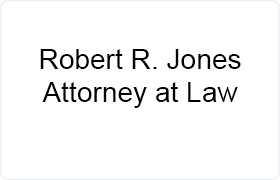Kingwood Criminal Lawyer, Texas
Sponsored Law Firm
-
 x
x

Click For More Info:
-
Robert R. Jones Attorney at Law
3526 E. FM 528 Suite 204 Friendswood, TX 77546» view mapCriminal Defense Expert Representation for Reasonable Rates
If you need representation, call me 24/7.
800-883-8760
Andrew J. Williams
Juvenile Law, Car Accident, Federal Appellate Practice, Domestic Violence & Neglect,
Status: In Good Standing Licensed: 31 Years
Dustan Neyland
Juvenile Law, Family Law, Personal Injury, Mass Torts, DUI-DWI
Status: In Good Standing Licensed: 17 Years
Andrew Johnston Williams
Juvenile Law, Car Accident, Federal Appellate Practice, Domestic Violence & Neglect,
Status: In Good Standing Licensed: 31 Years
Jeffrey Craig Desandro
Family Law, Criminal, Consumer Bankruptcy, Personal Injury
Status: In Good Standing Licensed: 23 Years
Michael Darrel Matthews
Juvenile Law, Other, Criminal, Administrative Law
Status: In Good Standing Licensed: 23 Years
Patrick G Hubbard
Traffic, Family Law, Criminal, Contract
Status: In Good Standing Licensed: 51 Years
 Robert Jones Friendswood, TX
Robert Jones Friendswood, TX AboutRobert R. Jones Attorney at Law
AboutRobert R. Jones Attorney at Law Practice AreasSpecializations
Practice AreasSpecializations
